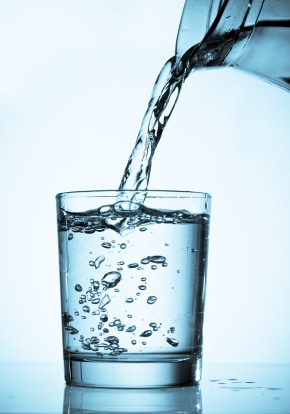Typical Causes of Water Contamination
 Water contamination is often thought to be caused by the leeching of chemicals or some unnatural occurrence. While this is certainly the case in many instances, most forms of water contamination are simply due to naturally occurring minerals being present in your water source, which may cause deposits that clog your pipes or affect your health, when consumed in excess. Sulfur, for example, is found in rainwater as well as most rocks and soils types and is easily dissolved by water when groundwater moves through the soil.
Water contamination is often thought to be caused by the leeching of chemicals or some unnatural occurrence. While this is certainly the case in many instances, most forms of water contamination are simply due to naturally occurring minerals being present in your water source, which may cause deposits that clog your pipes or affect your health, when consumed in excess. Sulfur, for example, is found in rainwater as well as most rocks and soils types and is easily dissolved by water when groundwater moves through the soil.
Similarly, iron is naturally occurring in underground water, rivers and lakes as well as can be released through natural deposits or through industrial, chemical waste. Serious contaminants, such as arsenic or lead, are often caused by the leaching of corroding materials and can lead to long term health problems. Groundwater, lakes, streams, and rivers can absorb a certain amount of contamination. However, due to the connectivity of a water cycle, even one rundown car dripping oil into a nearby storm sewer gate can cause pollution in thousands of litres of water.
If your water source is from a private well, there are even more reasons why your well water may be contaminated. Surface contamination is usually prevented through a surface seal to ensure that animals or insects are not present, and a screening filtration system is constructed at the bottom of the well to help reduce the amount of unwanted substances in the well itself. Depending on how old your well is and the way that it was installed, the construction of the well may cause certain contaminants through to your water. For example, an improperly capped well can also lead to contamination of surrounding areas, which is why well maintenance is so crucial to the quality of the water it generates.
Generally speaking, the more shallow a well, the more susceptible it is to contamination, than a deep water well. Soil quality, water table depth, the geology, ecosystems, and seasonal fluctuations are all related to whether or not your water is contaminated. Oftentimes, water contamination is a result of microorganisms or ions naturally existing in your soil or neighbouring ecosystem, and while it may be fine for the neighbour’s field, it becomes a problem once it finds its way into your well.
Unfortunately, most normal causes of water contamination are not usually able to be remedied in a cost-effective or efficient manner. Regular testing and treatment of your water levels is recommended, and the best way to prevent and treat water contamination. It is important to test your water for both chemical causes and natural causes of contamination as the first step to ensure that your water is safe for human and animal consumption. Learn more about how water testing works and why it is important.

